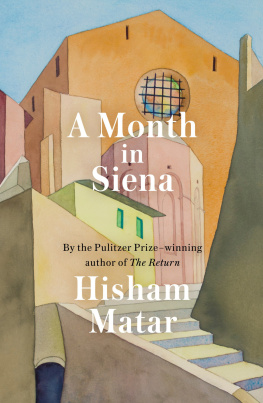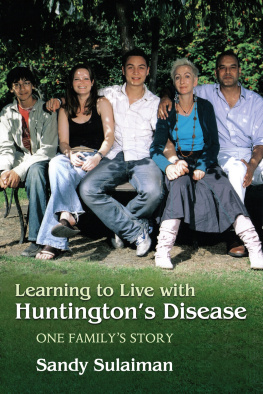
Hisham Matar
In the Country of Men
I am recalling now that last summer before I was sent away. It was 1979, and the sun was everywhere. Tripoli lay brilliant and still beneath it. Every person, animal and ant went in desperate search for shade, those occasional grey patches of mercy carved into the white of everything. But true mercy only arrived at night, a breeze chilled by the vacant desert, moistened by the humming sea, a reluctant guest silently passing through the empty streets, vague about how far it was allowed to roam in this realm of the absolute star. And it was rising now, this star, as faithful as ever, chasing away the blessed breeze. It was almost morning.
The window in her bedroom was wide open, the glue tree outside it silent, its green shy in the early light. She hadn't fallen asleep until the sky was grey with dawn. And even then I was so rattled I couldn't leave her side, wondering if, like one of those hand-puppets that play dead, she would bounce up again, light another cigarette and continue begging me, as she had been doing only minutes before, not to tell, not to tell.
Baba never found out about Mama's illness; she only fell ill when he was away on business. It was as if, when the world was empty of him, she and I remained as stupid reminders, empty pages that had to be filled with the memory of how they had come to be married.
I sat watching her beautiful face, her chest rise and fall with breath, unable to leave her side, hearing the things she had just told me swim and repeat in my head.
Eventually I left her and went to bed.
When she woke up she came to me. I felt her weight sink beside me, then her fingers in my hair. The sound of her fingernails on my scalp reminded me of once when I was unlucky. I had thrown a date in my mouth before splitting it open, only discovering it was infested with ants when their small shell-bodies crackled beneath my teeth. I lay there silent, pretending to be asleep, listening to her breath disturbed by tears.
During breakfast I tried to say as little as possible. My silence made her nervous. She talked about what we might have for lunch. She asked if I would like some jam or honey. I said no, but she went to the fridge and got some anyway. Then, as was usual on the mornings after she had been ill, she took me on a drive to pull me out of my silence, to return me to myself again.
Waiting for the car to warm up, she turned on the radio, skipped through the dial and didn't stop until she heard the beautiful voice of Abd al-Basit Abd al-Sammad. I was glad because, as everyone knows, one must refrain from speaking and listen humbly to the Quran when it is read.
Just before we turned into Gergarish Street, the street that follows the sea, Bahloul the beggar appeared out of nowhere. Mama hit the brakes and said ya satir. He wandered over to her side, walking slowly, clasping his dirty hands tightly to his stomach, his lips quivering. 'Hello, Bahloul,' Mama said, rummaging in her purse. 'I see you, I see you,' he said, and although these were the words Bahloul most often uttered, this time I thought what an idiot Bahloul is and wished he would just vanish. I watched him in the side mirror standing in the middle of the street, clutching the money Mama had given him to his chest like a man who has just caught a butterfly.
***
She took me downtown to the sesame man in the market by Martyrs' Square, the square that looked on to the sea, the square where a sculpture of Septimius Severus, the Roman Emperor born all those years ago in Lepcis, proudly stood. She bought me as many sesame sticks as I wanted, each wrapped in white wax-paper twisted at either end. I refused to let her put them in her bag. On such mornings I was always stubborn. 'But I have some more shopping to do,' she said. 'You're bound to drop them like this.' 'No,' I said, curling my eyebrows, Til wait for you outside,' and walked off angrily, not caring if I lost her or became lost from her in the big city. 'Listen,' she called after me, attracting people's attention. 'Wait for me by Septimius Severus.'
There was a large cafe on one side that spilled out on to the passageway. Men, some faces I recognized from before, sat playing dominoes and cards. Their eyes were on Mama. I wondered if her dress shouldn't be looser.
As I walked away from her I felt my power over her recede; I began to feel sorry and sad how on such mornings she was always generous and embarrassed, as if she had walked out naked. I wanted to run to her, to hold her hand, latch on to her dress as she shopped and dealt with the world, a world full of men and the greed of men. I forced myself not to look back and focused instead on the shops set within arched bays on either side of the covered passageway. Black silk scarfs billowed gently above one, columns of stacked red caps stood as tall as men outside another. The ceiling was made with dark strips of fabric. The white blades of light that pierced through the occasional gaps illuminated the swimming dust and shone still and beautiful on the arches and floor, but darted like sparkles on the heads and down the bodies of passers-by, making the shadows seem much darker than they were.
Outside, the square was flooded with sunlight. The ground was almost white with brightness, making the dark shoes and figures crossing it look like things floating above the world. I wished I had left the sesame sticks with her. Small needles were now pricking my arms. I told myself off for being stubborn and for letting her buy me so many. I looked at them in my arms and felt no appetite for them.
I leaned against the cool marble pedestal of Septimius Severus. The Roman Emperor stood above me, his silver-studded belt curving below his belly, pointing his arm towards the sea, 'Urging Libya to look towards Rome,' was how Ustath Rashid described the pose. Ustath Rashid taught Art History at el-Fateh University and was my best friend Kareem's father. I remembered our Guide standing in one of his military uniforms like this, waving his arm as the tanks passed in front of him on Revolution Day.
I turned towards the sea, the shining turquoise sea beyond the square. It seemed like a giant blue monster rising at the edge of the world. 'Ghrrr,' I growled, then wondered if anyone had heard me. I kicked my heel against the pedestal several times. I stared at the ground, into the heat and brightness that made me want to sleep with my eyes open. But then, not looking for but falling directly on my target, I spotted Baba.
He was standing on the edge of the pavement in a street opposite the square, looking both ways for traffic, arching forward as if he was about to fall. Before he stepped on to the road he motioned with his hand then snapped his fingers twice. It was a gesture that I knew. Sometimes he would wave to me like that, as if to say, 'Come on, come on,' then snap his fingers, 'Hey, wake up.' Behind him appeared Nasser, Baba's office clerk, carrying a small shiny black typewriter beneath his arm, struggling to keep up. Baba was already crossing the street, walking towards me. For a moment I thought he might be bringing Nasser to Septimius Severus, to teach him all the things he had taught me about the Roman Emperor, Lepcis Magna and Rome. For Baba regarded Nasser as a younger brother, he often said so himself.
'Baba?' I whispered.
Two dark lenses curved like the humpbacks of turtles over his eyes. The sky, the sun and the sea were painted by God in colours we could all point at and say the sea is turquoise, the sun banana, the sky blue. Sunglasses are terrible, I thought, because they change all of this and keep those who wear them at a distance. At that moment I remembered how, only a couple of days ago, he had kissed us goodbye. 'May God bring you back safely,' Mama told him, 'and make your trip profitable.' I had kissed his hand like he taught me to. He had leaned down and whispered in my ear, 'Take care of your mother, you are the man of the house now,' and grinned at me in the way people do when they think they have paid you a compliment. But look now, look; walking where I could touch him, here where we should be together. My heart quickened. He was coming closer.
Next page












